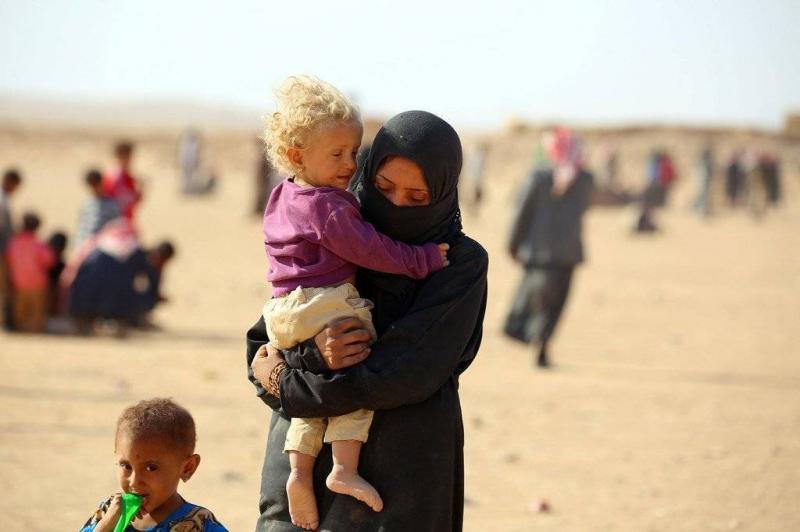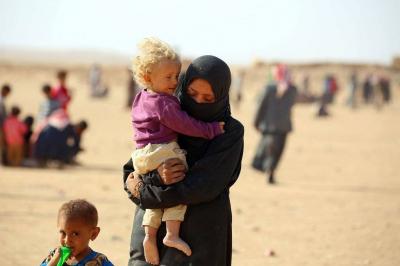The ministerial meeting of the International Coalition Against ISIS, held today Thursday in the Saudi capital Riyadh, highlighted the Hol camp and its complex conditions, particularly as it houses around 56,000 women, girls, and boys, including 37,000 foreigners. What about this newly established camp in northeastern Syria?
Following the consolidation of the International Coalition Against ISIS, it was decided to transfer the families and relatives of suspected ISIS fighters to Al-Hasakah province, leading to the emergence of a generation of orphans raised in an environment of hatred and violence, under the care of mothers who have endured various abuses and difficult circumstances. According to a United Nations report, such camps are establishing a new generation of extremists, and there is an urgent need to repatriate them to their home countries, with the concerned nations providing support to the detained families and rehabilitating the children away from extremist and violent ideologies. In this context, Saudi Foreign Minister Prince Faisal bin Farhan expressed regret over the reluctance of some major countries to take back their nationals from the Hol camp, leaving the burden on poorer nations.
In a previous statement by the United Nations Committee on the Rights of the Child, experts noted that there are more than 850 boys deprived of their liberty in prisons and other detention centers across the region, including so-called rehabilitation centers. The experts added, "Many children are now entering their fifth year of detention in northeastern Syria since they were captured by local authorities following the fall of Baghouz in early 2019. It is now time to return them to their homes."
Collective Arrest
Experts emphasized that the mass detention of children in the region due to alleged offenses committed by their parents is a blatant violation of the Convention on the Rights of the Child. They stated, "These children are held without any legal basis, judicial authorization, or review and oversight, in violation of the Convention on the Rights of the Child, which asserts that no child should be deprived of their liberty unlawfully or arbitrarily." They confirmed that most of these children know nothing but conflict and closed camps, where living conditions amount to cruel, inhumane, or degrading treatment and pose an imminent threat to their lives, physical and mental safety, and development. They added, "These wretched camps are not a suitable place for children to live with dignity. They lack access to basic needs such as medical treatment, health services, food, water, and education."
Worse Conditions for Boys
Experts focused on the situation of detained boys, many of whom suffer from untreated tuberculosis or wounds and suffer from malnutrition. "Many boys are forcibly taken from the camps and placed in detention and rehabilitation centers upon reaching the age of twelve, often at midnight and under the threat of weapons. These forms of inhumane treatment against boys are based on gender stereotypes and have severe and lasting consequences. All these children face a significant risk of sexual and gender-based violence, trafficking, and enslavement, particularly children with disabilities who are especially vulnerable to violence and harm."
The experts pointed out that these children themselves are victims of terrorism and serious violations, and thus the only solution lies in their safe return to their home countries in accordance with the Convention on the Rights of the Child. They affirmed that countries bear the responsibility to protect vulnerable children who hold their nationality from mistreatment and potential violations of their rights to life, stressing the urgent need for intervention to prevent them from further harm. Experts emphasized the necessity for these countries to quickly repatriate these children and their mothers, reiterating the need for comprehensive rehabilitation programs for them upon their return to their home countries.




